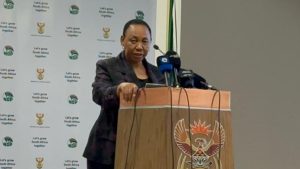South Africa’s unemployment rate rose by half a percentage point to 27.6 percent, official data showed on Tuesday, underlining the challenge facing President Cyril Ramaphosa after his African National Congress (ANC) government won elections last week.
The job losses focussed on the construction, finance and social sectors, with 6.2 million people unemployed in the first quarter of 2019 – the highest level since the third quarter of 2017.
Of the 20.3 million South Africans aged between 15 and 34, 40.7 percent were not in employment, education or training, according to the data released by Statistics South Africa.
South Africa’s unemployment crisis was a key battleground in the May 8, 2019 vote, which the ruling ANC party won with its lowest share of the ballot since the country embraced democracy with the fall of apartheid in 1994.
“They were saying ‘president: we want jobs’… that is what we are going to do, we are going to work hard to create jobs for our people,” Ramaphosa told ANC activists on Sunday after the count gave the party 57% of the vote.
Ramaphosa, 66, took over last year when the ANC forced Jacob Zuma to resign after nine years in office.
A former trade union leader and a wealthy businessman, Ramaphosa has vowed to boost sluggish economic growth and attract foreign investment to tackle unemployment.
“Within days of the election, the rise in unemployment figures is a stark reminder that without policy shifts and confidence-building initiatives, South Africa will continue to under-perform… and more ominously, will alienate its youth even further,” analyst Daniel Silk said on Twitter.
Selected by lawmakers in parliament, Ramaphosa is set to be inaugurated on May 25, 2019.
They say the biggest contributors to the unemployment rate came from Construction, Finance and other business services sectors.
Economist at NKC Economists Elize Kruger said, “Formal sector is the biggest drag with a 126 000 jobs lost during quarter 1. There are many headwinds in the economy at the moment, we’ve seen load shedding, we’ve got a higher tax burden since budget time, higher fuel prices…
“Many headwinds hitting the South African Economy in quarter 1and the employment numbers clearly reflect the dire scenario the country is currently in,” added Kruger.
additional reporting by Naledi Ngcobo.
The headline of this story has been updated to reflect the content of the story.






